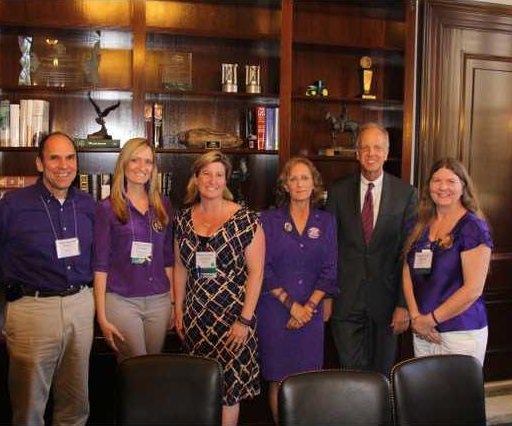KANSAS CITY, Kan. – Rural Kansans with diabetes have a new option for managing their disease thanks to a study underway at the University of Kansas Medical Center.
Approximately 179,000 Kansans over the age of 18 have been diagnosed with diabetes, according to the Kansas Diabetes Action Council’s 2011 Burden of Diabetes in Kansas report.
That represents 8.4 percent of the state’s adult population and a 42 percent growth in the prevalence of diabetes over the last decade.
“Research is showing that the longer people are in poor control of their diabetes, the more likely they are to get serious complications later in life,” says David Robbins, M.D., director of the University of Kansas Diabetes Institute and professor at the KU School of Medicine. “Research is also showing that insulin – which used to be considered a treatment of last resort – should now be introduced early to help patients control their diabetes.”
Ideally, Robbins says, patients should begin injecting insulin no more than three months after lifestyle changes and oral medications have failed to bring their blood glucose down to the recommended levels. But in the United States, the average delay is three years. That delay is one cause of complications that are costly in both human and economic terms.
Patients can manage their diabetes by giving themselves insulin shots, but that requires learning how to monitor glucose levels and adjust their insulin doses accordingly. And while doctors throughout Kansas work hard to manage their patients’ chronic diseases, Robbins says, teaching patients how to manage their own diabetes requires resources that rural health care providers might not always have readily available. Putting patients on insulin is particularly time-consuming for the provider, and a patient – who may be more than an hour’s drive from the nearest health care provider – may have to drive some distance to get appropriate insulin education.
Kansas has fewer than a dozen endocrinologists, most of them concentrated in Wichita and Kansas City, so most diabetes care is undertaken by primary care physicians or nurse practitioners who may have limited staff and time for providing the education that is needed for patients with chronic diseases such as diabetes. “We are interested in empowering rural Kansans who are living with diabetes to understand their disease and manage it in a way that allows them to live their lives fully. Patients can be the first line of control in their disease, while still getting medical care from their usual providers,” says Robbins.
The new KU program is a study in which providers are able to refer patients they want to start on insulin. Patients are then enrolled in a live online course, where they will be able to interact with a certified diabetes educator and other patients with diabetes who are also learning how to inject insulin and adjust doses to reach blood glucose targets.
Patients will be asked to participate in four hour-long interactive online sessions with groups of 4-10 participants; complete a daily logbook over the six-month duration of the study; complete online surveys about their attitudes toward insulin, their quality of life and their treatment satisfaction; test their A1c three times with a mail-in kit provided by KU researchers; and, if they wish, voluntarily participate in a focus group at the end of the study.
Providers must refer patients to the study, which is funded by the National Institutes of Health. The study now has 35 participating providers across the state, but any provider is welcome to contact Robbins or Study Coordinator Debbie Lee, RN, CDE, at 913-588-6053 if a patient wants to participate and is an appropriate candidate. Interested patients should talk to their providers.
KU Medical Center program offers diabetes management help for rural Kansans





